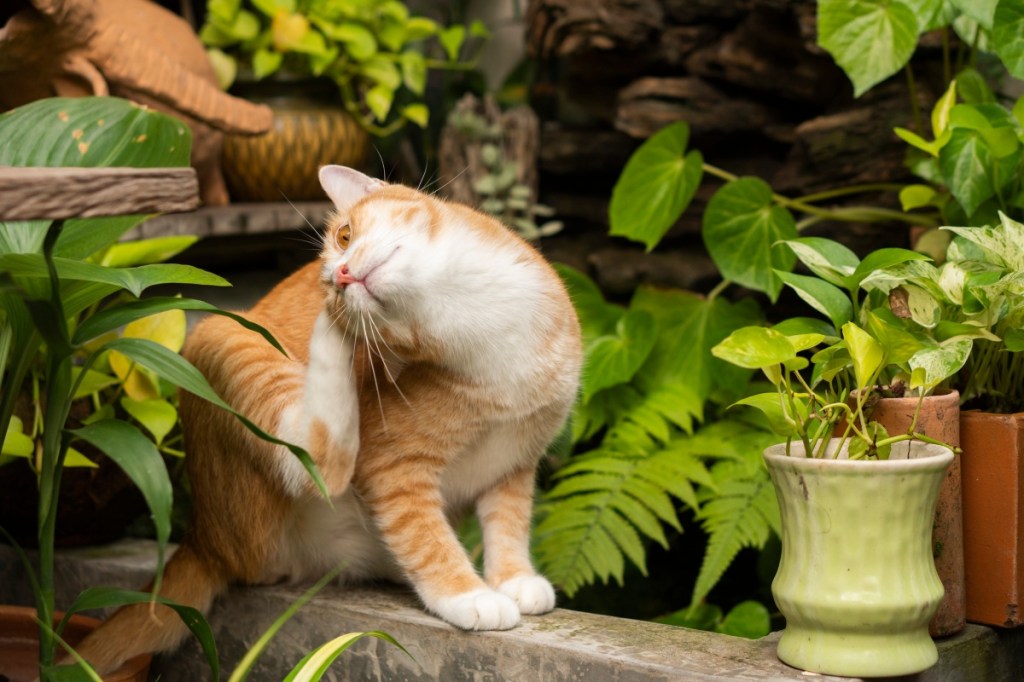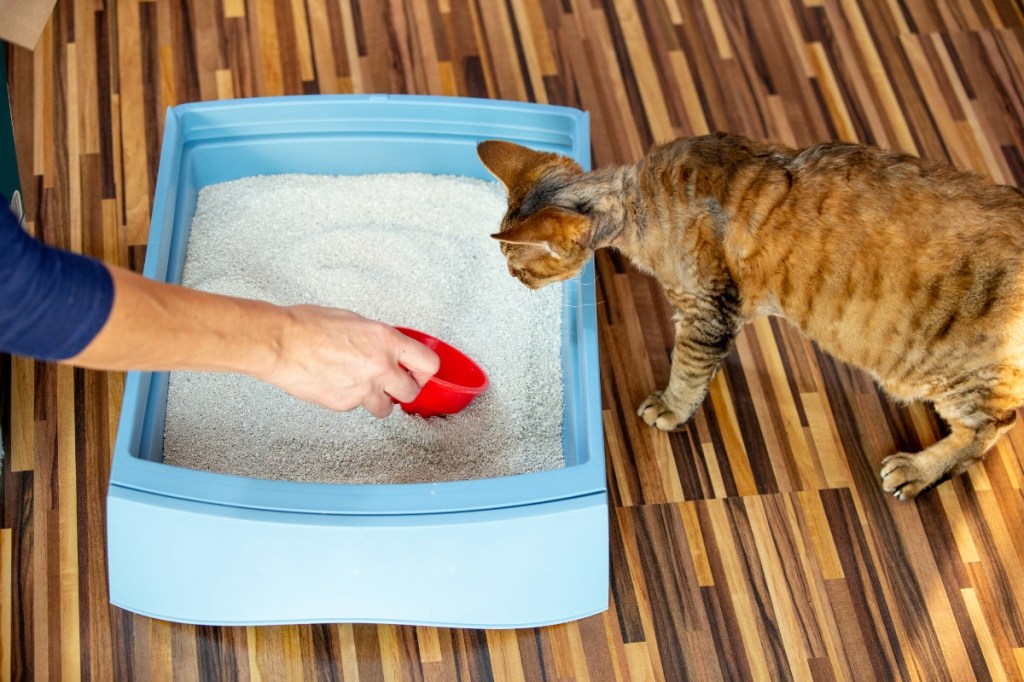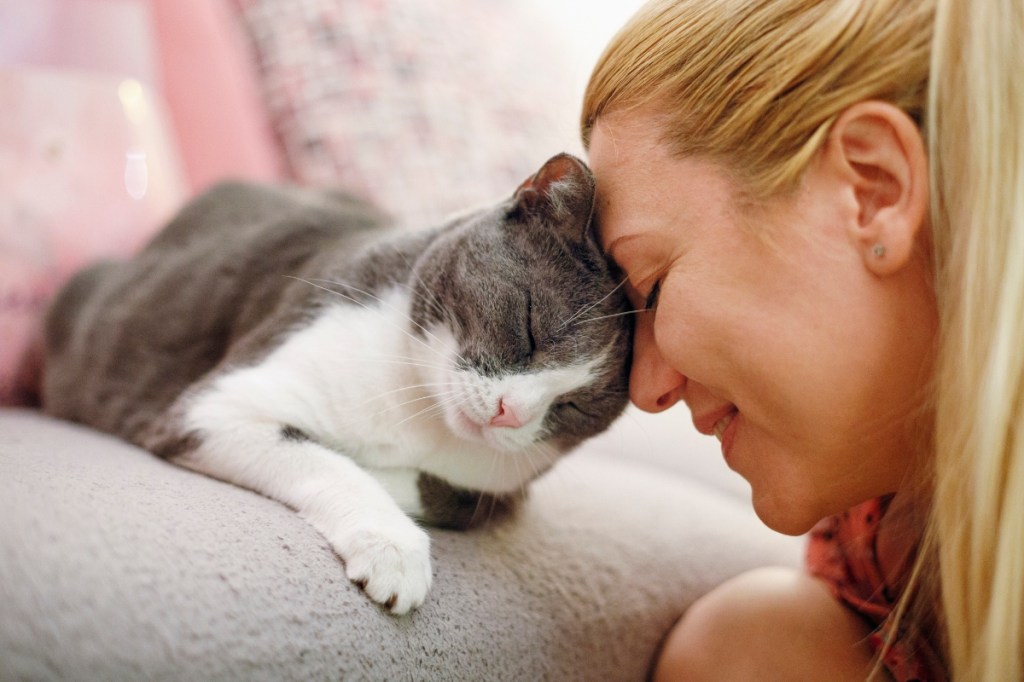Table of Contents
Cats and kittens are susceptible to a variety of intestinal parasites, including cestodes, more commonly known as tapeworms. Tapeworms resemble long and flat ribbon-like worms ranging in size from 4 to 20 inches. Cats can get tapeworms through ingesting fleas, which can occur during grooming, rodents, birds, or any small animal infected with the parasite. Because cats are scavengers by nature, tapeworms are quite common!
After being ingested, a tapeworm will attach itself to the walls of your cat’s small intestine and start absorbing digested food. As the worm continues to feed off your cat and grow to adulthood, pieces of it will exit your cat through its feces and will look like small, rice-like worms. Those segments that have landed in your cat’s litter box or elsewhere in the house will then be eaten by fleas, which will go after your cat again and continue the vicious cycle.
Symptoms of Tapeworms
An analysis of your cat’s bowel movements is often the only way to diagnose a tapeworm, as most cats won’t show any other outward symptom. However, if a cat has multiple tapeworms, it may display symptoms including:
- Weight loss in severe infections
- Increased appetite
- Irritability or depression
- Dull coat
- Anemia or weakness in severe infections
- Dragging, licking, or biting at anus due to itchiness
- Worm or worms in vomit (rare)
- Intestinal blockage in severe infections
Tapeworm Treatment
Luckily, once your cat has been diagnosed with a tapeworm through your veterinarian, treatment is very effective. Deworming medications go to work right away ridding your cat of this meddlesome parasite. Some tapeworm medications work by paralyzing the tapeworm and forcing it to release its grip on the intestinal wall; it then passes through your cat’s feces on its own. Other medications simply kill the tapeworm and it is digested within the intestine and never passes into the stool.
Your veterinarian can help you decide which medication is best for your cat. Deworming medications can be applied through injections, oral tablets, or skin drops. Rare side effects include vomiting and diarrhea.
If your cat contracts tapeworms through fleas, take extra precautions to rid your entire home and yard of fleas so your cat doesn’t get infected again. Wash all cat toys, bedding, and accessories in hot water. Practice good hygiene with your cat’s litter box, safely dispose of all feces daily, and disinfect the litter box and its surrounding area regularly.
Prevention
Because tapeworms are acquired by consuming fleas, rodents or other small animals, limiting your cat’s exposure to those critters can help prevent the risk of tapeworm infestation. Keep cats inside in a clean environment as often as possible. Make sure any other pets in your household are also flea-free and safe.
Keep an eye on your cat’s fur and skin for fleas, and use a regular, year-round flea preventive as a safeguard.
Can I Get Tapeworms from My Cat?
Yes, but it’s rare and there is probably no need to panic. To contract a tapeworm from your cat, you would have to ingest one of the same fleas on your cat’s body that your cat caught the tapeworm from. It’s not unheard of for a human to ingest a flea, but it’s also not likely.
Even less likely though are the chances that the tapeworm would mature in your body. There have been fewer than 20 cases in the last 20 years of humans developing cat tapeworms in their bodies. To ward off the chances of tapeworm for the whole family, practice good hygiene and flea control habits and enjoy a parasite-free lifestyle.
By enrolling your cat early, conditions and illnesses like parasite infection treatments will be covered up to 90% by your Healthy Paws pet insurance. Find out more by getting a free quote.
The content is not intended to be a substitute for professional veterinarian advice, diagnosis, or treatment. Always seek the advice of your veterinarian or other qualified health provider with any questions you may have regarding a medical diagnosis, condition, or treatment options.









